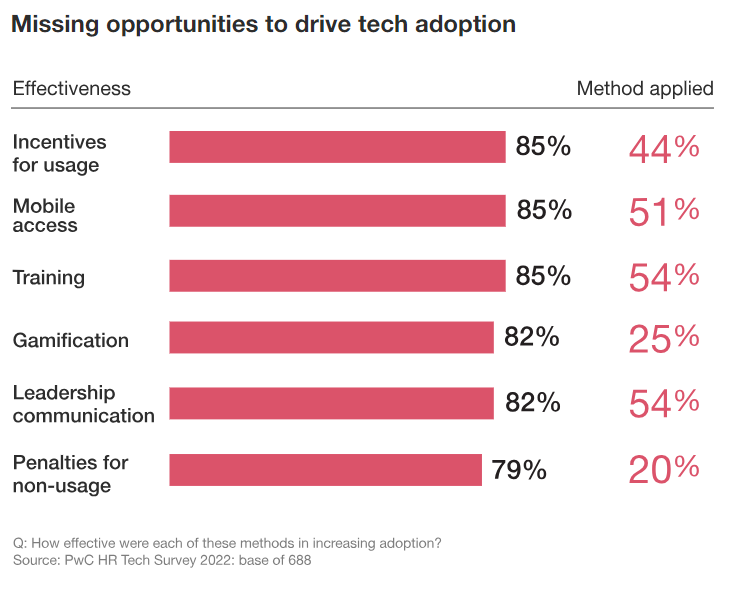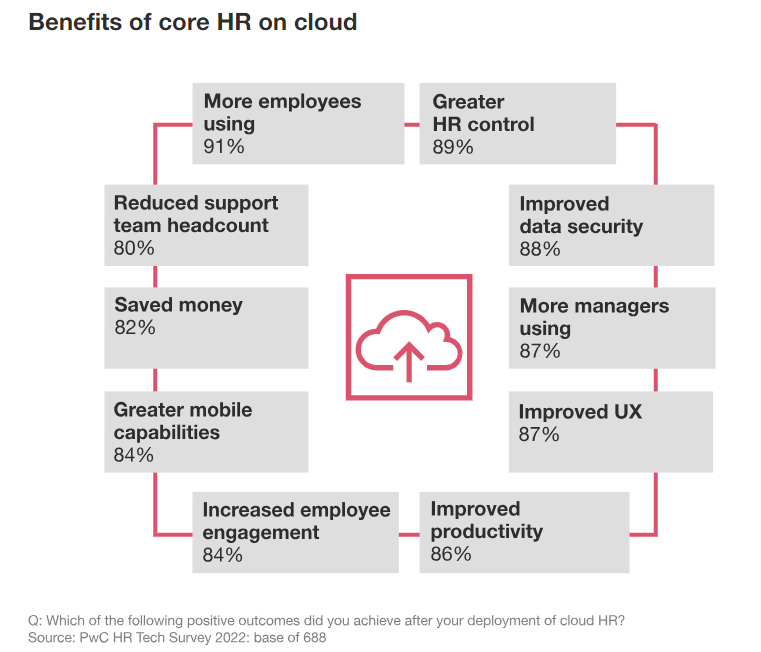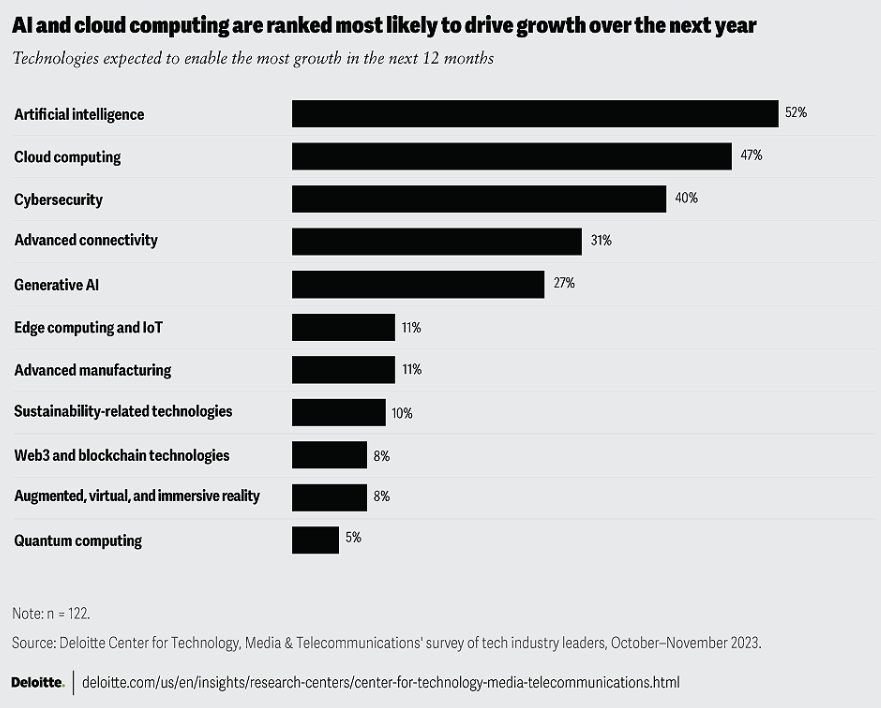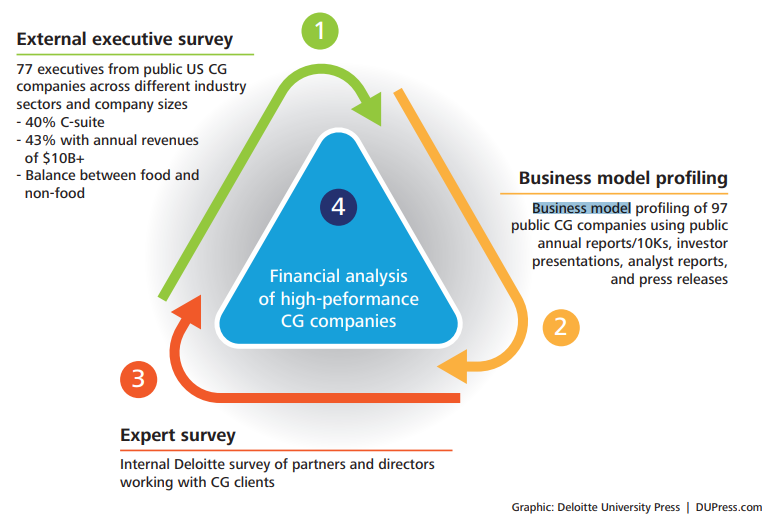Introduction
As we delve into 2025, it is not our cup of tea to cast our eyes towards the development of human resources. The top 10 HRTech predictions for 2025 are about a dynamic shift towards integrated & AI-driven employee practices. Technology is taking a toll on this world and is no longer resistible. The technology is ever-evolving and innovative. Last year, HR leaders were overwhelmed with responding to the new trends and challenges, including adopting advanced analytics and AI in HR. To assist HR in preparing for another year of changes and trends in the HR industry, the HR tech predictions for 2025 may lead the global HR market.
Read Visit HR Tech Blog: 10 HR Trends To Adapt In Business To Gain Traction
The rising skills gap, shifting workforce, adopting a hybrid work model, shifting organizational priorities, and the steady adoption of AI to restructure business, market trends, and global talent are leading to certain predictions for 2025. The strategic workforce decisions you make as a talent leader today may have a lasting impact on the organization and employees, deciding whether your organization will thrive or just survive.

Top 10 HR Tech Predictions For 2025
#1. GenAI Focus Will Shift To Ubiquity Across Solution Sets
The predictions on HR technology trends and challenges would be remiss if not started with implementing technology that might generate 10% of all data by 2025. GenAI is an artificial intelligence that generates original content in various forms, such as texts, audio, video, images, and code, that previously required humans and their expertise to create. It helps businesses improve their services and products, create innovative customer experiences, automate repetitive tasks, and offer innovative and interactive solutions to customers. HR Tech is predicted to be a long-term user of AI and machine learning functionality, which could quickly integrate GenAI functions into existing solutions, allowing for targeted purposes- such as large-volume data summarization, text-based content generation, and insights surfacing, for example, querying HR policy to answer worker questions.

#2. Headless HR Systems
A headless HR system means any HR process platform that operates without a traditional user interface or front end. The HR system’s back-end functionality is segregated from the presentation layer, assisting for more flexibility and customization in integrating the system with other applications. Features are interconnected through APIs (application programming interfaces) and can be integrated into multiple applications, platforms, or interfaces without being tied to a specific front-end design. As organizations are focused on delivering more efficient and personalized HR experiences, the role of HR tech stands at a focal point. Usemultiplier and Darwinbox are some of the most frequently used tools.

#3. The Total Workforce Will Offer More Efficient And Strategic Use Of Contingent Labor
The year 2025 will be a year of changes. The content will be generated, systems will be integrated, and innovation will be the best friend in how workforce data is used and analyzed. TWI is a tool that helps companies manage their workforce by considering external labor market information and various talent acquisition methods. Total workforce intelligence (TWI) is a unified approach to assist organizations in controlling their workforces by understanding and using external market data for labor across various talent models. Total workforce intelligence will analyze resumes, job postings, census data, and talent profiles to understand skills and talent availability. Utilizing this data allows informed decisions on workforce hiring, interviewing, training, and improving agility and productivity.

Read Visit HR Tech Blog: Top 10 Employee Performance Management Software
#4. Deskless Worker Design At Workplaces
HR technology constantly strives to meet workers’ needs, but it has not always met the needs of workers spending their days away from the desktop. Deskless workers envision HR’s tech-driven future for workers in different industries such as healthcare, retail, and manufacturing. This approach strengthens deskless workers with the help of technology, improving their work experience, propelling a positive workplace culture, and raising business success. Integrating various talent management software will lead to the rise in diskless worker design, making the process smoother and more efficient.

#5. Digital Identity Management
Digital identity management ensures that online identities are secure and only belong to the right people. This is important to protect against online threats like identity theft and unauthorized access. It also helps keep sensitive information safe by ensuring that only the right people can see it.
#6. Digitalization Of Tools And Practices
Digital transformation was already in sources, but it grew dramatically. At the heart of the digital revolution: the integration of AI, such as the adoption of HR chatbots and integration of other technologies such as AR in HR processes, blockchain, and VR. It responds to the rising quest for excellence, productivity, and contextualization in work transformation and talent management. Adopting these tools humanely and ethically may become a challenge to avoid the issue of dehumanization and ensure personal data safety. HR is a mediator between employees and technology, ensuring that everyone is on board. This technology is predicted to smoothen the entire HR process.

#7. Ethics of AI and Digital Ethics
The adoption of AI and advanced technology is moving staggeringly, bringing incredible potential for workplace transformation. Digital ethics have become an important priority, addressing the issues of privacy, respect, transparency, and the responsible use of AI. HRs are at the forefront of AI ethics issues. Their priority is to establish clear ethical principles to guide the utilization of AI and digital technologies in the organization. This also includes respecting the employee’s privacy, transparency in data use, and ensuring that AI complements and improves human capabilities instead of replacing them.

#8. HR Driving Climate Change Adaptation
The role of HRs in sustainability is relatively new but is quickly becoming crucial as companies move forward to adapt to the challenges of climate change, prepare for environmental disruptions, and ensure their workforce is resilient. HRs need to take this responsibility due to the rising need for sustainable practices in organizations.
Read Visit HR Tech Blog: 7 HRtech Trends For 2024
#9. Change in Business Models
Business models have drastically changed over the last few years. The new models are more digital and adaptable to changing consumer needs. The Ulrich models are taking the lead in the industry. In the longer run, the Ulrich model is likely to evolve into an advanced HR operating model that aligns with the exact needs of the organization’s business strategy. This evolution began in 2024 as siloed HR services integrated into fully developed solutions.

#10. Shifting The Work-Life Balance To Work-Life Fit
Since the pandemic broke out, it has ripped off the bandage of our strained relationship with work, revealing the stress and imbalances in professional life. After the great resignation, where 47 million workers voluntarily resigned from their jobs in 2022, there were also lying flat and quiet quitting jobs. This term creates a grim picture of our relationship with work and, as an extension, the organization we work for.
Tech-Led Future Ahead
The drastic growth of GenAI, such as ChatGPT, has severely impacted the workforce in 2023–24. As organizations keep on recognizing its transformative potential, most have integrated AI into the workforce and operations in 2024. A holistic approach to AI, between a thin line of human tasks and machine functions blurring, will become important for long-term business growth. Technology is predicted to surge the use of HR chatbots, talent management software, and other AI-backed technologies to ease the work of HR.
To share your HR technology insights and announcements, please write to us at news@intentamplify.com



